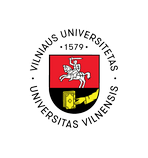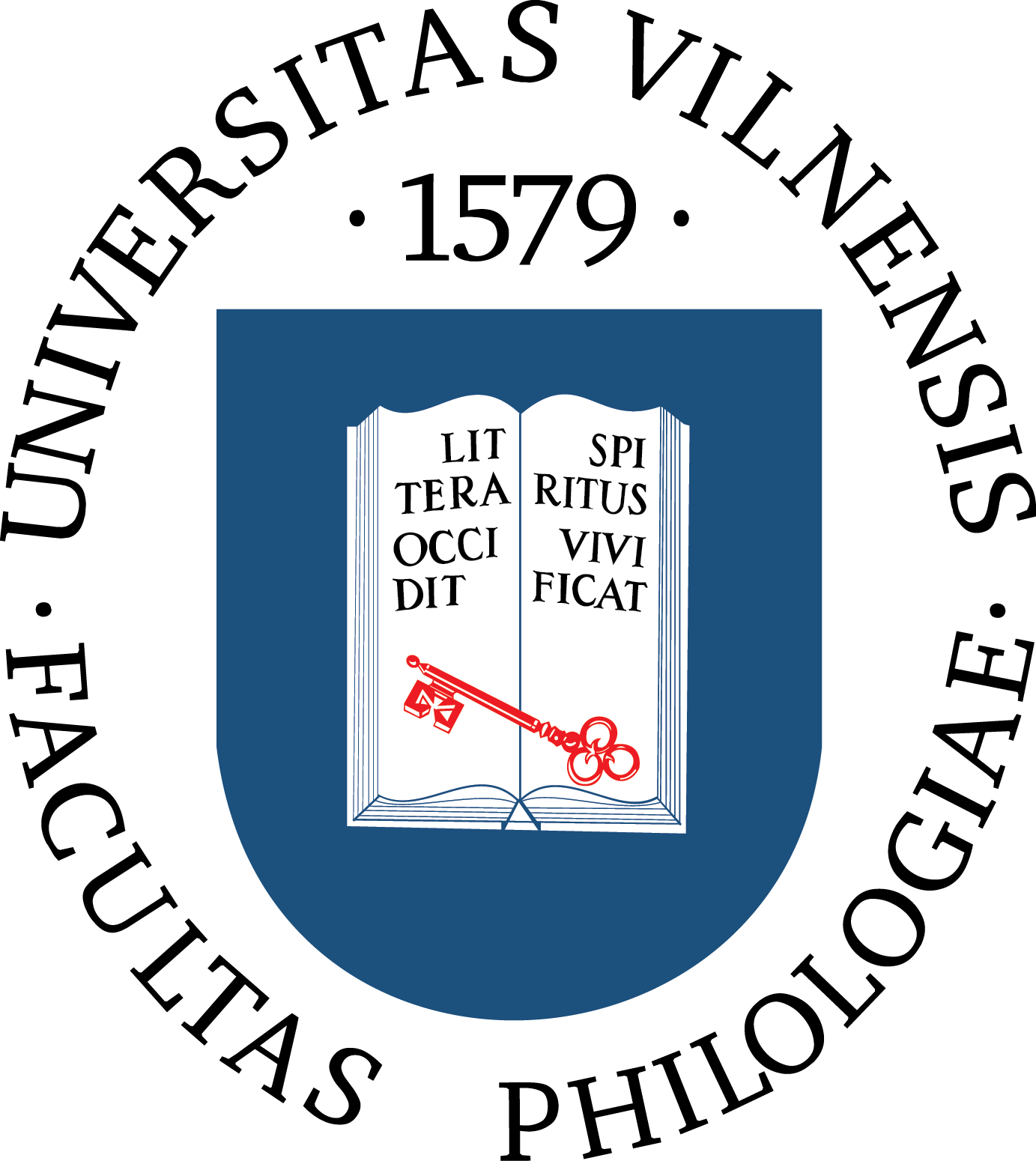KONFERENCIJOS PROGRAMA
PRANEŠIMŲ SANTRAUKOS
ŠAUKIMAS TEIKTI STRAIPSIUS
Žurnalas VERTIMO STUDIJOS (STUDIES IN TRANSLATION),
Specialusis teminis numeris „Translation, Ideology, Ethics: Response and Credibility / Vertimas, ideologija, etika: patikimumas ir atsakas“
Leidinys planuojamas spausdinti internete 2023 m. birželį.
Straipsniai priimami iki 2023 m. sausio 15 d.
Specialiojo teminio numerio sudarytoja Nijolė Maskaliūnienė.
Mielieji kolegos,
kviečiame teikti straipsnius žurnalo VERTIMO STUDIJOS (STUDIES IN TRANSLATION) specialiajam numeriui, kurio tema Translation, Ideology, Ethics: Response and Credibility / Vertimas, ideologija, etika: patikimumas ir atsakas.
VERTIMO STUDIJOS (STUDIES IN TRANSLATION), ISSN 2029-7033 | eISSN 2424-3590, tai atvirosios prieigos periodinis metinis tarptautinis Vilniaus universiteto leidinys, kuriame publikuojami Lietuvos ir užsienio tyrėjų straipsniai įvairiomis vertimo temomis. Leidinio tikslas – telkti mokslininkus, besidominčius vertimo teorija ir praktika, pažindinti mokslo visuomenę su naujausiomis vertimo mokslo tyrimų išvadomis, skatinti mokslines diskusijas, ieškoti atsakymų į dar daugybę neatsakytų klausimų vertimo teorijos ir praktikos srityje. Žurnalo straipsnius recenzuoja du recenzentai, aptaria redakcinės kolegijos nariai.
Žurnalas registruotas duomenų bazėse: BASE, CNKI, CORE, CEEOL, Dimensions, DOAJ Seal, ERIH-PLUS, Google Scholar (h5-index 2, g5-index 2), HEAL link (Hellenic Academic Libraries Link), JournalTOCs, Lituanistika, MLA Directory of Periodicals, MLA International Bibliography, QOAM, ROAD, ScienceGate, ScienceOpen, Scilit; yra Atvirųjų citatų iniciatyvos (i4OC) ir Atvirųjų santraukų iniciatyvos (I4OA) narys.
SUDARYTOJŲ PASTABA
Specialusis teminis žurnalo numeris apima temas ir problemas, paliestas Vilniaus universiteto Vertimo studijų katedros organizuotoje konferencijoje „Vertimas, ideologija, etika: patikimumas ir atsakas“ (Vilniaus universitetas, 2022 m. rugsėjo 22–24 d.). Daugiau apie konferenciją ir joje analizuotus klausimus skaitykite konferencijos svetainėje: http://www.vertimas2022.flf.vu.lt/language/lt/apie-konferencija-2/ .
PATEIKTI STRAIPSNĮ
- Šiam numeriui straipsniai anglų ir lietuvių kalbomis teikiami per bendrą VU žurnalų leidybos sistemą: https://www.zurnalai.vu.lt/vertimo-studijos/about/submissions.
- Straipsnių gairės lietuvių ir anglų kalbomis pridedamos.
- Kilus klausimų, prašome kreiptis į Deimantę Veličkienę el. adresu <deimante.velickiene@flf.vu.lt>.
SVARBIAUSIOS DATOS
- Straipsnių laukiame iki 2023 m. sausio 15 d.
- Redakcinės kolegijos sprendimas pateikiamas iki 2023 m. vasario 28 d.
- Leidinys spausdinamas internete 2023 m. birželį.
REDAKCINĖ KOLEGIJA
- Redakcinė kolegija https://www.journals.vu.lt/vertimo-studijos/about/editorialTeam
SPECIALIOJO TEMINIO NUMERIO SUDARYTOJA
- Prof. dr. Nijolė Maskaliūnienė
PAGRINDINIAI PRANEŠIMAI
Jorge Díaz-Cintas
Londono universiteto koledžas
NAVIGATING IDEOLOGICAL MEANDERS IN AUDIOVISUAL TRANSLATION
Remaining faithful to the creative intent of the original work is one of the driving mantras behind the practice of translation, though how to achieve such a feat is more often than not open to discussion, if not controversy. In today’s digital society, audiovisual productions occupy a pole position as a site of contact between cultures, making them an influential artifact for the transmission, not only of factual information, but also of moral values, cultural clichés, and stereotypes that can be either translated at face value or ideologically manipulated to suit the interests of different stakeholders. Drawing on illustrative examples, this presentation explores how audiovisual translation becomes a locus of power struggles in which the end result is not solely dictated by linguistic asymmetries between the languages in contact but also by decisions based on power, dominance, and ideology.
Nike K. Pokorn
Liublianos universitetas
CONTROL, CONFORMITY AND DISSENT IN A SOCIALIST STATE PUBLISHING HOUSE
In socialist states translation was crucial for the success of the ideological program of the Communist Party and therefore communist ideological imperatives were clearly reflected in translation and publishing policies. Since particular attention was paid to ideological indoctrination of new generations, translations for children reveal the values of socialist societies, while the publishing process leading to a publication of translations shows the hidden workings of socialist ideological control. Through extensive research of the archives and interviews with the editors, the presentation identifies the main agents responsible for ideological shifts in translations and explains some isolated instances of dissent by focusing on the publishing house Mladinska knjiga, the largest publishing house of children’s literature in the Socialist Republic of Slovenia.
Sharon O’Brien
Dublino miesto universitetas
TRANSLATION AS CRISIS RESPONSE
The crucial role that translation and interpreting play in crisis communication is gaining increasing recognition. Though the need for timely, accurate and clear communication in crisis and disaster settings has been recognised for a long time, the need for multilingual communication — enabled through translation and interpreting — had not been extensively recognised, discussed or researched. In the past few years this situation has changed and many studies have been published that highlight how crucial it is to plan for translation in a crisis. This need has been further underlined by the recent COVID-19 pandemic. In this talk, I will touch upon some of the work that has been carried out, highlighting topics such as emergency response policy, technology, training, and ethics, to showcase how T&I research is contributing to this important topic. Consideration will also be given to future research directions to ensure that we continue to grow momentum on translation as crisis response.
Elisabet Tiselius
Stokholmo universitetas
RESEARCHER CREDIBILITY: ESTABLISHING TRUST
Research into the interpreting practice has a few specificities which put high demands on interpreting researchers. Studies involve human participants in an overwhelming majority of studies, and these participants are more often than not acquaintances, colleagues, students or otherwise known to the researchers themselves. Others may be vulnerable groups in society such as medical patients, children or criminal suspects.
These characteristics require the researcher to be highly aware of their own position, ideology, voice and responsibility. In order to gain and uphold credibility in different communities (research as well as the professional), and of course in relation to the participants, the researcher needs to take these aspects into account already from the outset of the planning of a study.
In my talk, I would like to approach different aspects of researcher credibility and how to establish trust in different types of research studies and to different counterparties. Trust needs to be established both in terms of scientific rigor for preparing, designing and reporting the study, and also in the recruitment and relationship to participants. I will give examples from different studies, different methods and different researchers, and describe how trust can be gained, but also lost for several different reasons.
I will use interpreting studies as example to discuss the potentials, but also the risks, of being a researcher deeply embedded in the community studied.
SEMINARO PAGRINDINIS PRANEŠIMAS
Joss Moorkens
Dublin City University
ETHICS AND SUSTAINABILITY IN MACHINE TRANSLATION
Neural machine translation (MT) can facilitate communication in a way that surpasses previous MT paradigms, but there are also consequences of its use. As with the development of any technology, MT is not ethically neutral, but rather reflects the values of those behind its development. This presentation reflects on ethical issues around MT, beginning with data gathering and reuse and looking at how MT fits with the values and codes of the translator. The computing power requirements of neural networks also behoves us to think about issues of environmental as well as social sustainability related to the deployment of MT. Rather than promoting an approach that involves following a set of instructions to implement a technology unthinkingly, contemporary thinking in this area highlights the importance of a conscious decision-making process when designing a data-driven MT workflow.

